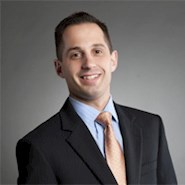I enjoy a quote that’s often attributed to Spider-Man, although technically, his uncle Ben said it: “With great power comes great responsibility.” It’s wisdom that is highly applicable to the professional engineer’s license.
In my previous column, I wrote about why it is so important to obtain your P.E. license as a civil engineer. Now, let’s look at some key things – and some responsibilities – you should be aware of as a civil engineer who has or is looking to earn a P.E.
Liability – Most civil engineers don’t realize the tremendous amount of liability they expose themselves to when they sign and seal engineering documents. Guidelines are different in all U.S. states, so talk to a good lawyer about your exposure, but if you are signing off on a design, you own it with respect to liability. In many states that means that if there is a third party detail on the plans, you must be comfortable with that design, as you are putting your license behind it. If you plan to sign and seal drawings anytime soon, make sure you have a professional liability policy that covers you. ASCE membership provides insurance program discounts.
Fees – In most states, you will have to pay registration and renewal fees to maintain a current P.E. license, and if you are licensed in multiple states, then those fees can add up. Be aware of what the fees are and whether or not your employer will cover them for you. In my opinion, the benefits of the credibility boost that a license gives you makes it worth it to maintain the license even if you aren’t currently using it.
Continuing education – Many states require that you take a certain number of professional development hours (PDHs) to keep your license current. Also in some states it is mandatory to obtain at least 1 ethics related PDH. You should understand the costs associated with continuing education. When I say costs, I mean the time and money it will take to maintain your P.E. license. Will your company allow you to use work time to go and obtain the PDHs? All things you should find out early on in your quest for your P.E. license, but again, this item shouldn’t prevent you from obtaining one.
Ethical component – This is another critical aspect of licensure. As a licensed engineer, you are ethically responsible for practicing only in the fields of engineering that you are knowledgeable about. For example, I am licensed in New York state. I am not a licensed civil engineer nor does it say civil engineer anywhere on my P.E. license registration. I am a licensed professional engineer, and I am responsible for practicing in the engineering disciplines in which I am competent. Failure to do so could cause engineering failures that could harm people. It is critical that you understand this point. I can’t cover engineering ethics in totality, or even close to it, in this post, but I will look to do a more detailed post in the future on this topic.
Contract awareness – Most civil engineers will have to deal with contracts at some point in their careers. Some of the contracts on civil engineering projects are extremely intricate and complex. The more you can learn about contracts as a licensed P.E., the better off you will be, especially if you will be signing and sealing documents that are affected or associated with these contracts. This ties into the liability point above. This is an aspect of projects that a lot of civil engineers think they don’t need to be well versed in, which is why if you do learn about contracts, you will distinguish yourself from many other civil engineers. I recently interviewed an expert in contracts on The Civil Engineering Podcast, and he provided 10 tips every civil engineer should know.
I’ll close by restating that a P.E. license gives you power that can be used in amazingly great ways, but can also be dangerous. You have the power to improve transportation and water systems, design new residential and/or commercial developments, help to improve the design of school systems, and more. However, there are engineers who take advantage of their license and use it for their own personal financial gain. Understand the power that the P.E. license gives you and use it wisely.
And remember … “With great power comes great responsibility.”
Anthony Fasano, P.E., F.ASCE, is the founder of the Engineering Career Coach website which has helped thousands of engineers develop their business and leadership skills. He hosts the Civil Engineering Podcast and has written a bestselling book for engineers, Engineer Your Own Success. You can download a free video series on his website that will give you the tools needed to immediately improve your networking and communication skills.



